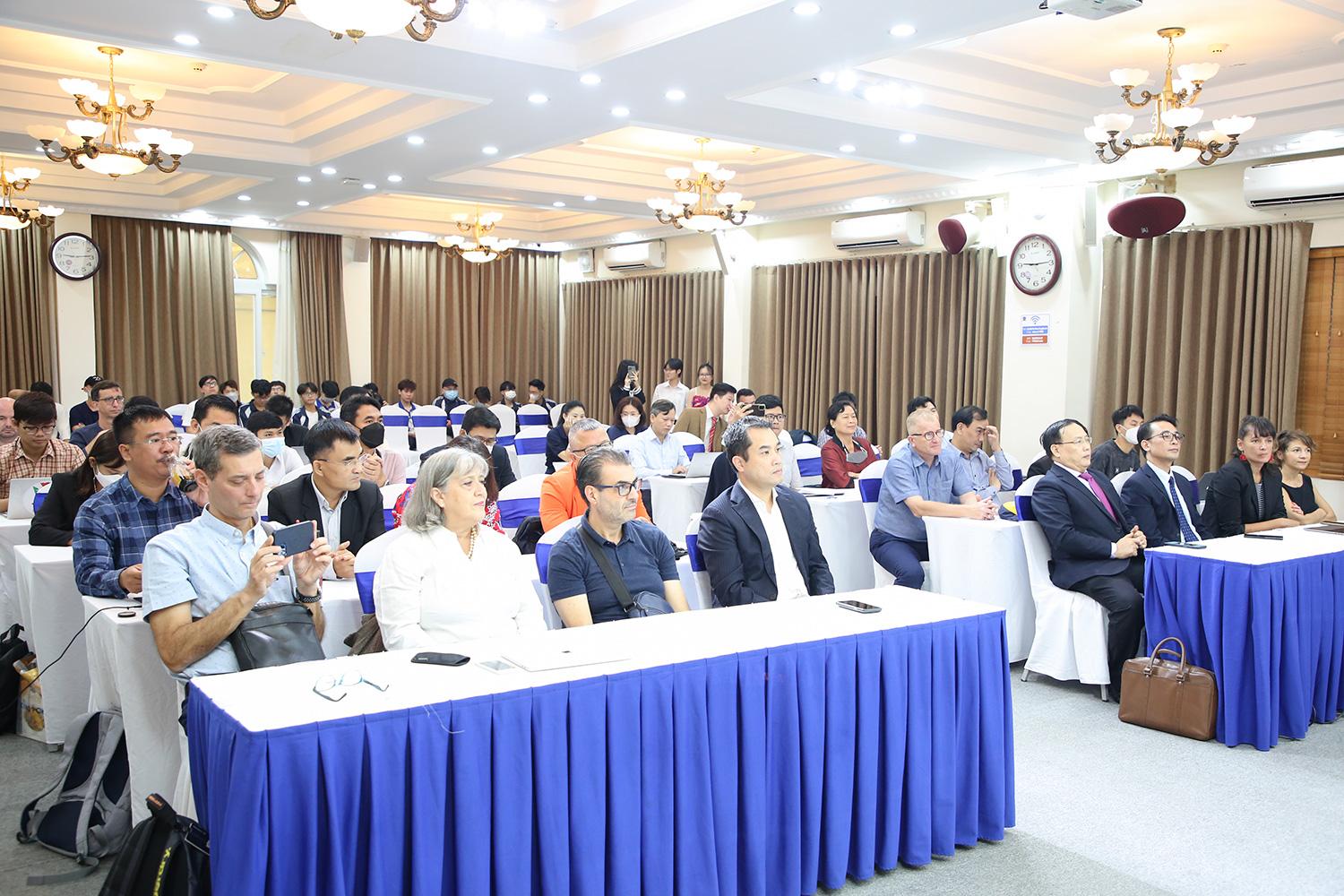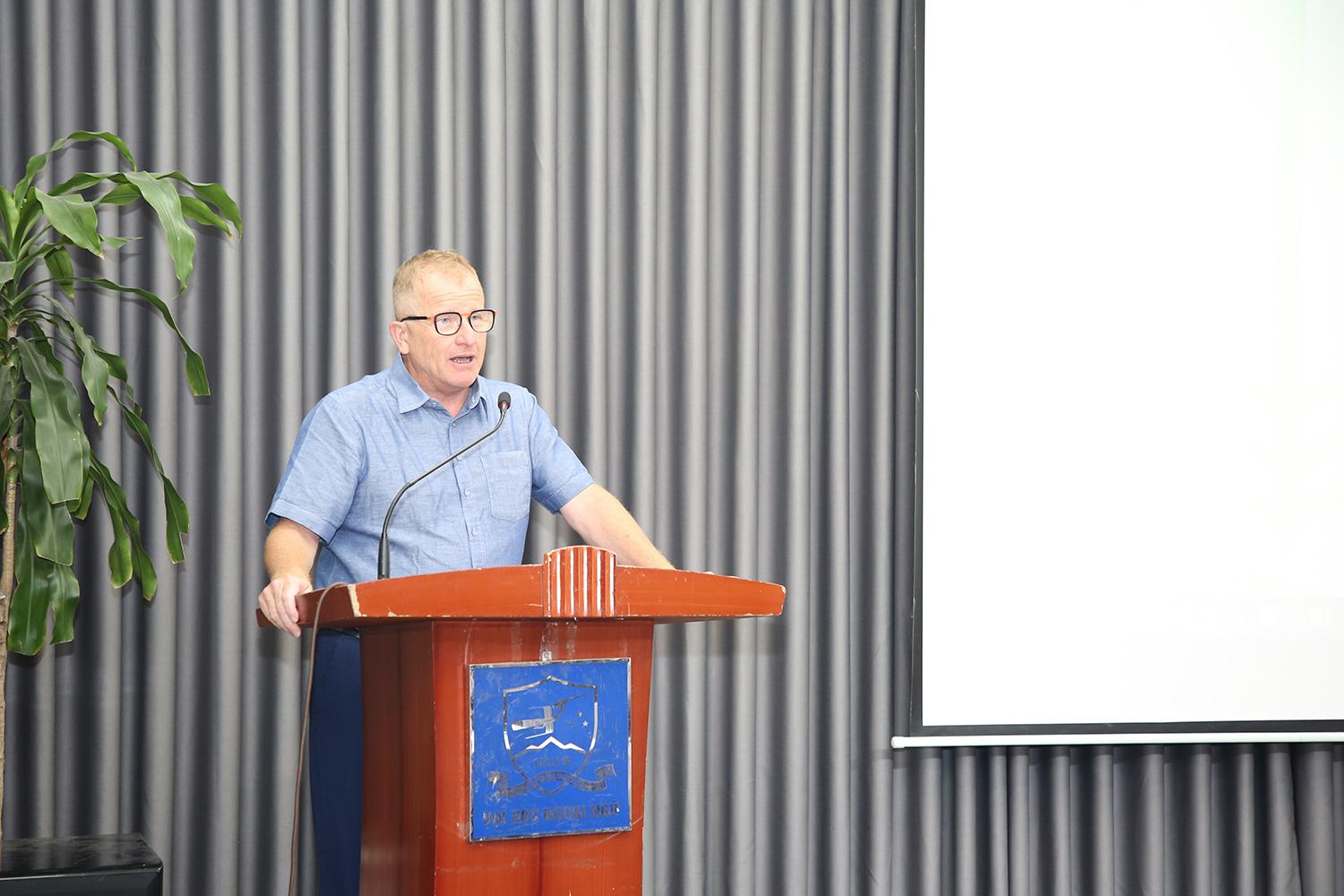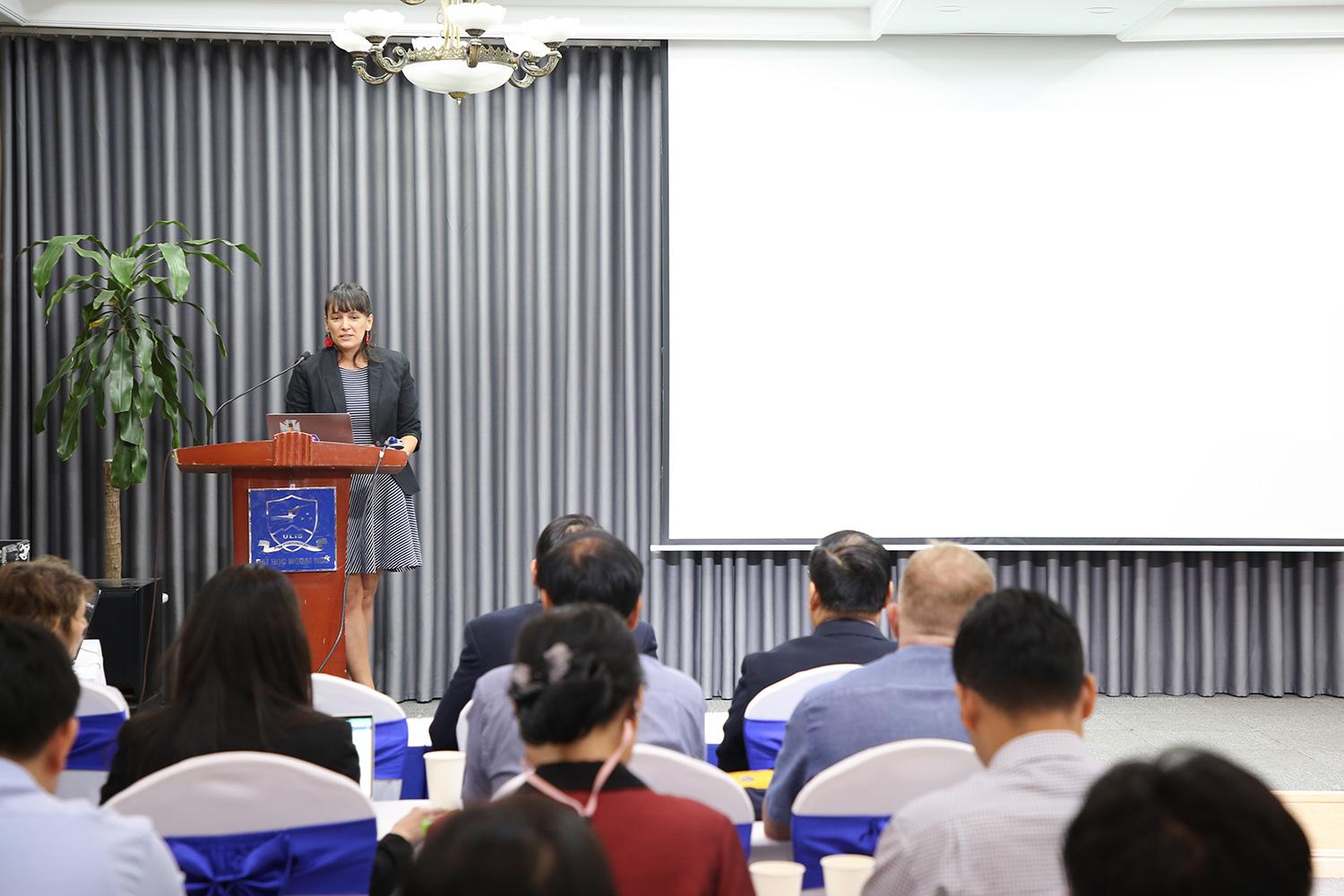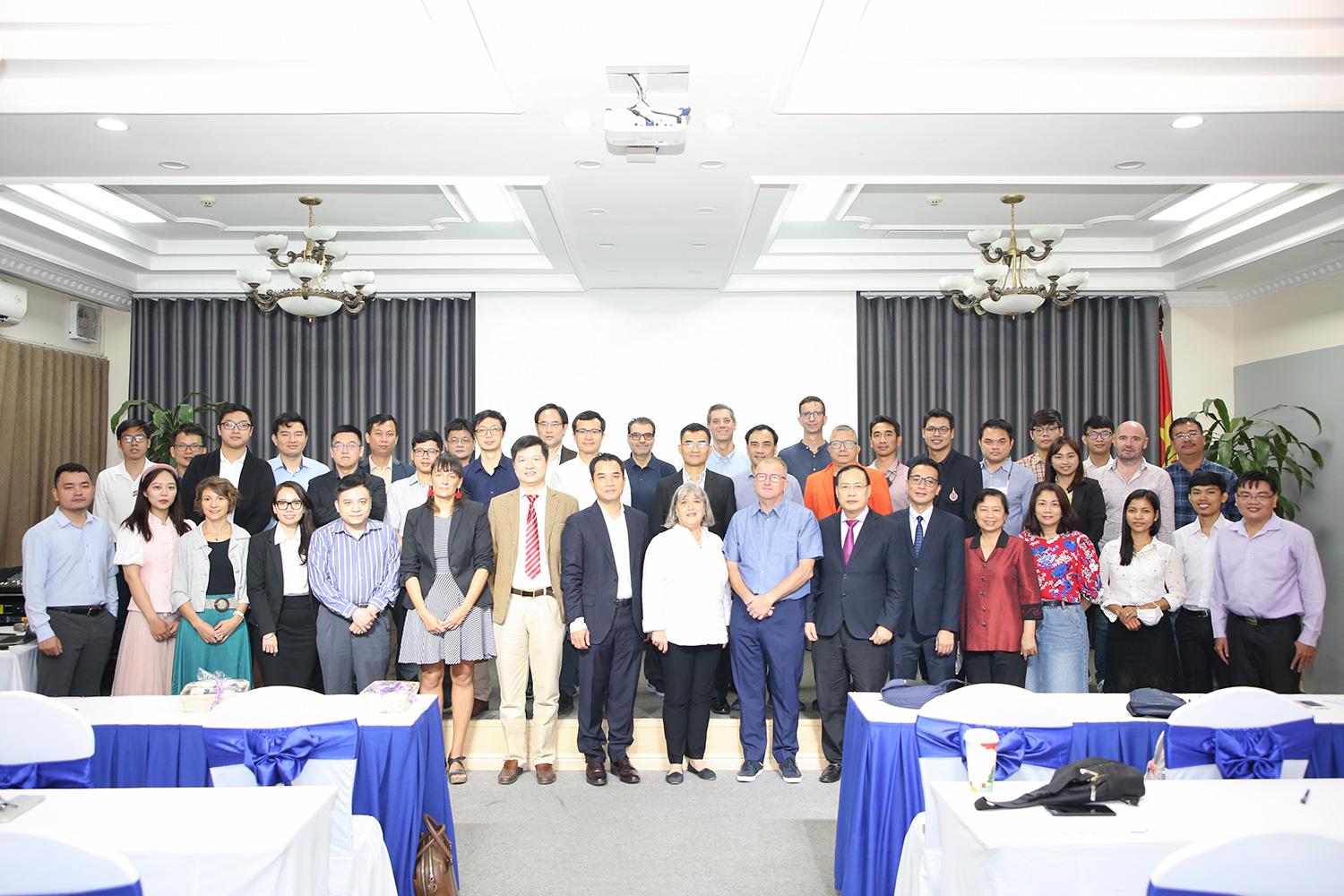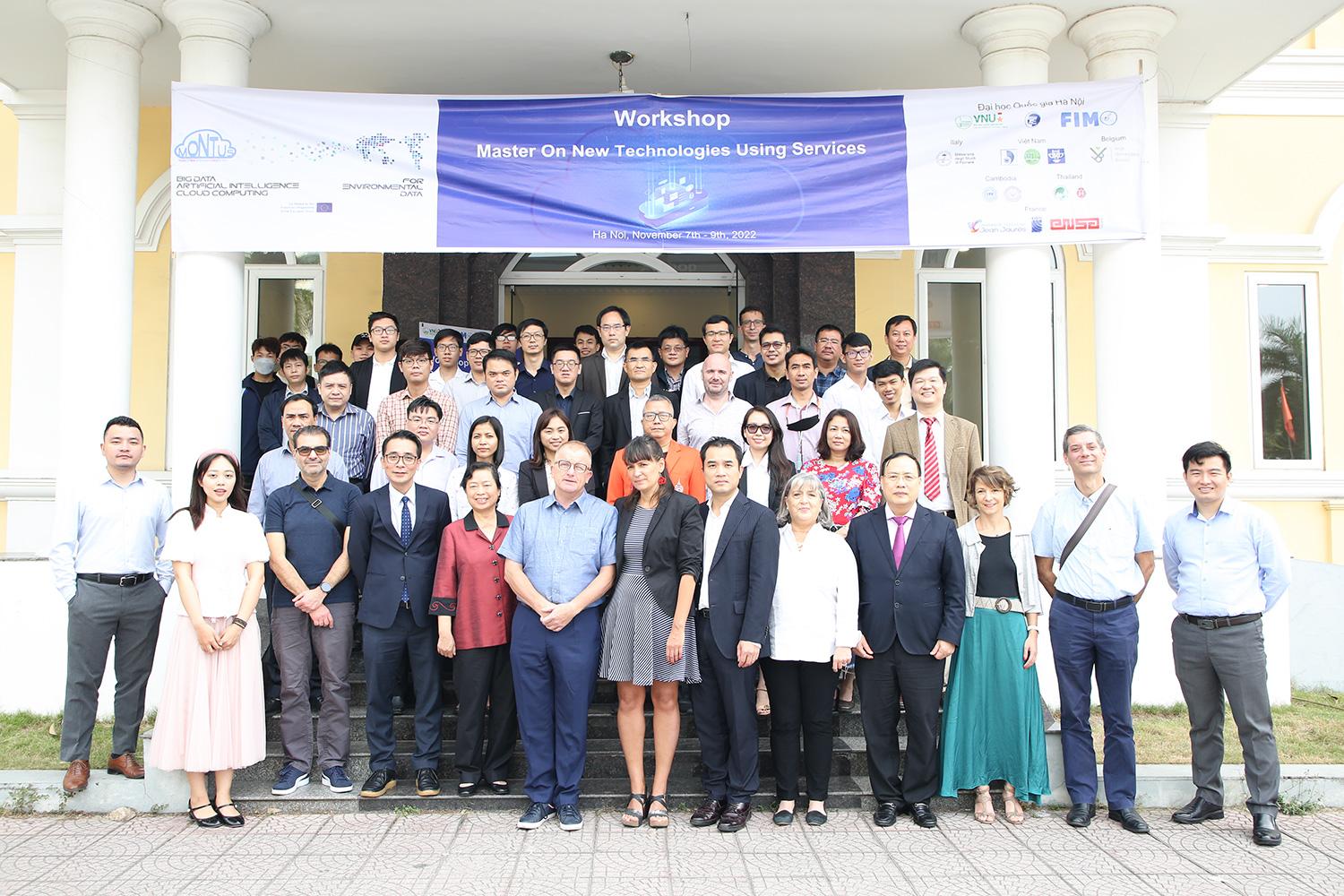MONTUS, an Erasmus + Capacity Building project (2018-2022) reached its conclusion on November 14 after the closing workshop held at VNU, Hanoi Vietnam from November 7 to 9. Funded for 4 years (initially 3 and extended for 1 year), MONTUS brought together the University of Toulouse Jean Jaurès (UT2J, France), the Toulouse National School of Architecture (ENSA Toulouse, France), the International School of Information Processing Sciences (CYU, Pau campus, France), the University of Ferrara in Italy, the Vrije Universiteit Brussel (VUB, Belgium) the Faculty of Engineering and Technology of Vietnam National University (VNU, Vietnam), the Hanoi Architectural University (HAU, Vietnam), Nong Lam University – Ho Chi Minh City (NLU, Vietnam), the University of Danang (UD, Vietnam) the Asian Institute of Technology (AIT – Pathumthani, Thailand), the Walailak University (Nakhon Si Thammarat, Thailand), the Royal University of Fine Arts (RUFA, Cambodia) and the Institute of Technology of Cambodia (ITC, Cambodia) and HUPI cloud computing society (France).
Anchored in themes that are crucial to our society, the originality of MONTUS was to both develop and implement training courses and pedagogical materials at the interface of Cloud Computing/Big Data/Artificial Intelligence and environmental sciences and to promote their education in a new specific master degree at the University of Engineering and Technologies at VNU in Hanoi, Vietnam.
The project addressed the fact that to be able to process large volumes of data, IT has had to evolve to find solutions to store and process massive data by dynamically allocating storage and/or processing resources according to user needs via the Internet network and online services. At the same time, environmental sciences have evolved to put data at the center of their practice. However, few scientists, engineers and technicians were able to master Big Data, Cloud Computing or Artificial Intelligence techniques for applications to environmental data aimed at sustainable development. The ambition of our project was therefore to promote exchanges between these different scientific communities, to produce pedagogical resources for their understanding of these different fields and increase mutual competences and to perpetuate this work with the integration of courses on these themes in a new Master's degree at VNU which will open in 2023.
To make this possible, the 13 institutions involved have worked closely together for 4 years. Despite the pandemic period, we managed to organize 7 face-to-face workshops in both Europe and Asia. One workshop was held online as well as numerous meetings. More than 100 people worked for MONTUS.
Several important results can be highlighted. During the project, more than a hundred training sessions on scientific and managerial issues were given by partners to partners and students present during our 8 workshops. We also proposed a model of a Master program and the syllabus for all the courses. We produced online pedagogical materials (written chapters and videos) on the Foundations of environmental sciences, Data and management tools for environmental sciences and Computing for environmental sciences. A GPU cluster server was also financed, delivered, installed and is currently working at the Institute of Technology of Cambodia. Case studies dedicated to environmental sciences have been deployed on the server.
All partners are proud of the results we have achieved and come away enriched by this interdisciplinary and intercultural project. We are currently working on a new project with a majority of partners in order to promote the sustainability of the results obtained and extend their impact.
